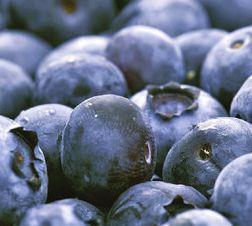
UK researchers have established a connection between increased consumption of certain fruits to reduced Type 2 diabetes risk, according to a study published in the British Medical Journal, the FreshFruitPortal reports.
The study looked at the diets of more than 187,000 participants over a 24 year period. All participants, most of whom were women, had no chronic disease at the baseline of the research.
The study examined consumption of 118 foods, including 11 fruit categories and various types of fruit juices. The former included grapes and raisins, peaches, plums and apricots, prunes, bananas, cantaloupe, apples and pears, oranges, grapefruit, strawberries, blueberries and sporadic analysis of watermelon.
During the course of the study, 12,000 participants developed type 2 diabetes.
Whole fruits, particularly bluberries, grapes and apples, were identified as significantly reducing the risk of developing type 2 diabetes, while fruit juice consumption increased risk of developing the disease.
Other fruits were not connected with this lower risk, however, due to variable fibre, antioxidant and other nutrient content.
“In three prospective cohorts of US men and women, we found that the associations with risk of type 2 diabetes differed significantly among individual fruits: greater consumption of blueberries, grapes, apples, bananas, and grapefruit were significantly associated with a reduced risk of type 2 diabetes,” the study reported, according to the FreshFruitPortal.
“Additionally, differences in the glycemic index/glycemic load values of fruits did not account for the association of specific fruits with risk of type 2 diabetes. Moreover, greater fruit juice consumption was associated with an increased risk, and substitution of whole fruits for fruit juice was associated with a lower risk, except for strawberries and cantaloupe.”






No comments yet